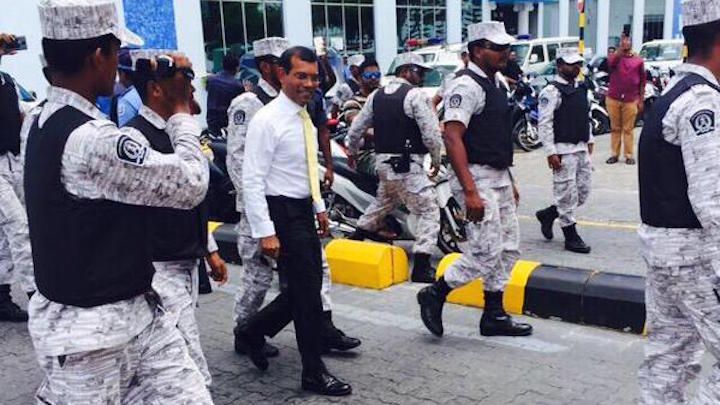Yameen awaits supreme court ruling in Nasheed’s terror appeal
The president said he will urge the supreme court to issue a ruling in Nasheed’s terror appeal. “Then we can decide on how to move forward. But the truth we must accept is that when such heinous crimes occur, justice will be served someday.”

11 May 2016, 09:00
The supreme court’s verdict on former President Mohamed Nasheed’s appeal against a terrorism conviction may show the way out of the Maldives’ protracted political crisis, President Abdulla Yameen has suggested.
Yameen, who is facing pressure over a crackdown on democracy, said he intends to request the apex court to speed up issuing a ruling in the opposition leader’s terrorism case.
Appeal hearings had concluded last March.
Speaking on the island of Gan in Laamu Atoll on Monday, Yameen said: “In the ongoing talks involving the UN Secretary General’s envoy, their foremost request is for government to appeal to the Supreme Court to speed up the court processes for President Nasheed and other politicians. I will appeal for this. But even if I do not, it will go ahead that way too. It will happen through the existing system. The judiciary is obliged to do so.”
Become a member
Get full access to our archive and personalise your experience.
Already a member?
Discussion
No comments yet. Be the first to share your thoughts!
No comments yet. Be the first to join the conversation!
Join the Conversation
Sign in to share your thoughts under an alias and take part in the discussion. Independent journalism thrives on open, respectful debate — your voice matters.




